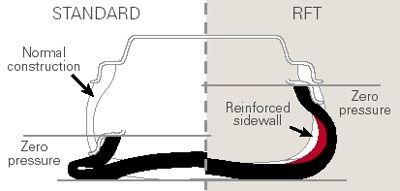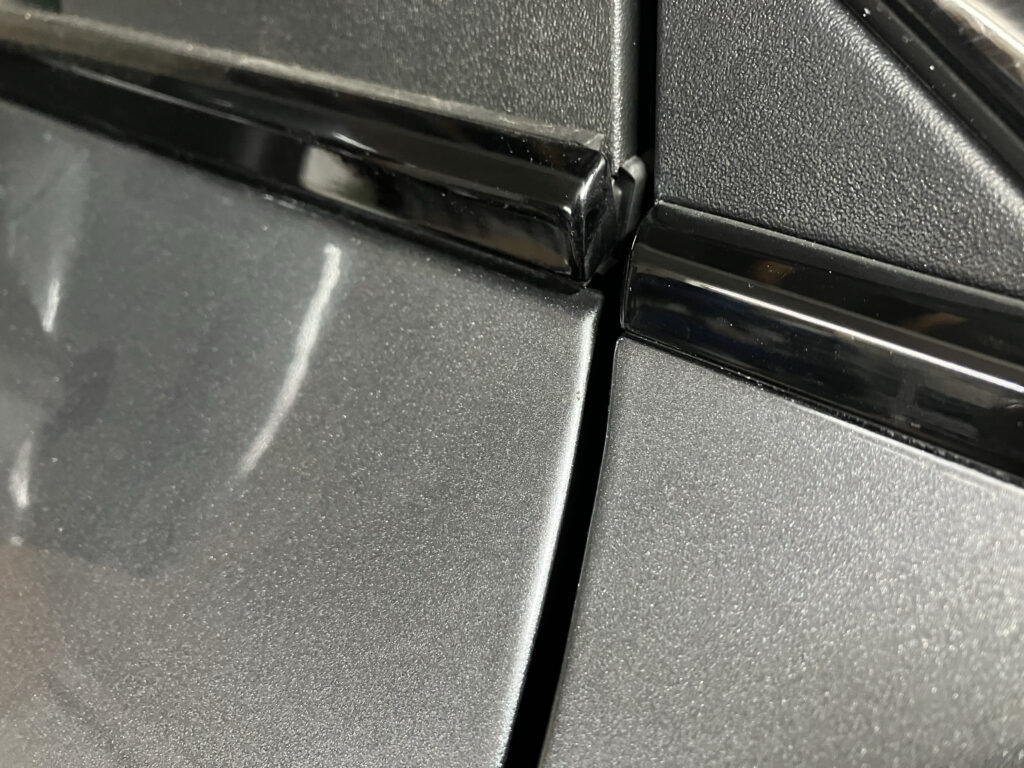What are SSR or Self Supporting Runflat Tyres?
You may have heard of runflat tyres and you may also be wondering what they are and whether your car is fitted with them or not. On the other hand, you might know something about runflat tyres, in which case you should still read on just in case you learn something new.
What are runflat tyres?
Runflat tyres are tyres with strongly reinforced sidewalls so that you can still drive with them in the event of a puncture. Of course, there are limitations – you have a maximum range of 50 miles and a maximum speed of 50mph. This should be enough to get you home, or to your local garage. If you’re a long way from home, you can still get help by using AutoAdvisor to find a nearby garage or mechanic that specialises in runflat tyres.
Sounds great. Does my car have runflat tyres?
You can tell if your car has runflat tyres by looking in the boot. Lift up the floor cover and if you see a spare wheel in a specially-moulded cavity, alongside a jack and a spanner, then you don’t have runflats. If there’s no spare tyre, or the cavity for a spare tyre, then you do have runflats. If you’re still unsure, ask a mechanic the next time you visit your local garage for some windscreen washer.
What are the advantages of runflat tyres?
Runflat tyres have four main advantages:
- The reinforced sidewall helps you to maintain control of the vehicle in the event of a puncture or blow-out at speed
- If you do get a puncture, you don’t have to make an emergency stop by the side of a motorway or busy road – one of the most dangerous things you can do as a driver – to repair it or wait for help
- You have more space in the boot as there’s no need for a spare wheel kit, and
- Your load is lighter, as spare wheels are heavy.
From the outside (as it were), runflat tyres look pretty much the same as “regular” premium tyres and more and more cars are being fitted with them as their original equipment (OE). The foremost car manufacturers, such as BMW, Mercedes and Audi often fit their cars with Continental runflat tyres as OE and so you may have been driving a car with runflats without even knowing.

How exactly do runflat tyres work?
Runflat tyres have their reinforced sidewalls which continue to support the vehicle in the event of a puncture. These sidewalls are incredibly tough and allow you to carry on driving (albeit at a slower speed, remember) for up to 50 miles to reach a safer place to stop and get a repair. Usually, a puncture can mean the loss of handling, which on a motorway can be very dangerous.
You must use runflat tyres in conjunction with a tyre pressure monitoring system (TPMS) so that you get an alert to let you know you have a puncture. Otherwise, you may think you’ve just gone over a bump and carry on driving at speeds over 50mph.
If you get the TPMS alert…
…then you must slow your speed to under 50mph and drive no more than 50 miles on the tyres. If you’re near to home or to a garage, then head straight there. If you’re somewhere unfamiliar, look for the nearest motorway exit or service station and seek help once you’re safely parked.
Should you replace runflats with regular tyres?
It can be tempting to replace a punctured runflat with a non-runflat tyre because it’s cheaper, but it’s a really bad idea. As runflat tyres are usually OE, the car manufacturer didn’t design a space for a spare tyre under the boot, which means you’ll have to keep your spare in the boot. This can be really inconvenient and can also add weight to your day-to-day load, costing more fuel in the long run.
You won’t just have to buy the single non-runflat to replace the punctured runflat tyre, either. You’ll need a spare, plus jack and spanners, just in case that new tyre gets a puncture, so you’re looking at a false economy and a downgrade in safety for you and your passengers.
The easiest way to find the best mechanic for your needs.
Other Articles

MAHLE presented a world first at the IAA Transportation 2024 in Hanover New component for fuel cell and electric vehicles halves fan noise on average Bionic fan is based upon an AI-optimized design found in nature: the wings of an owl, one of the quietest birds 10 percent higher efficiency and 10 percent less weight […]
MAHLE presented a world first at the IAA Transportation 2024 in Hanover New component for fuel cell and electric vehicles halves fan noise on average Bionic fan is based upon an AI-optimized design found in nature: the wings of an owl, one of the quietest birds 10 percent higher efficiency and 10 percent less weight […]




